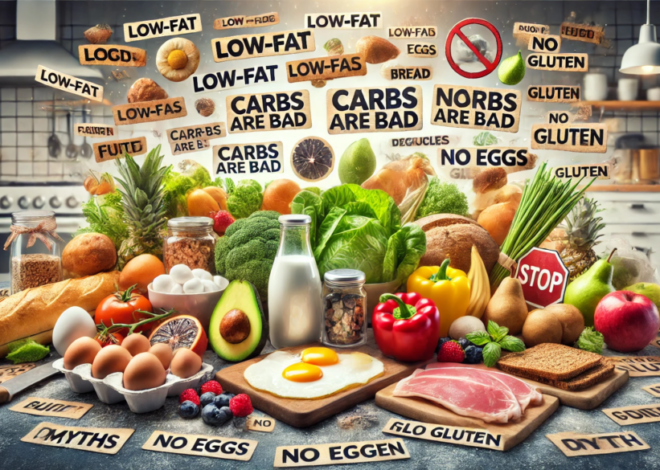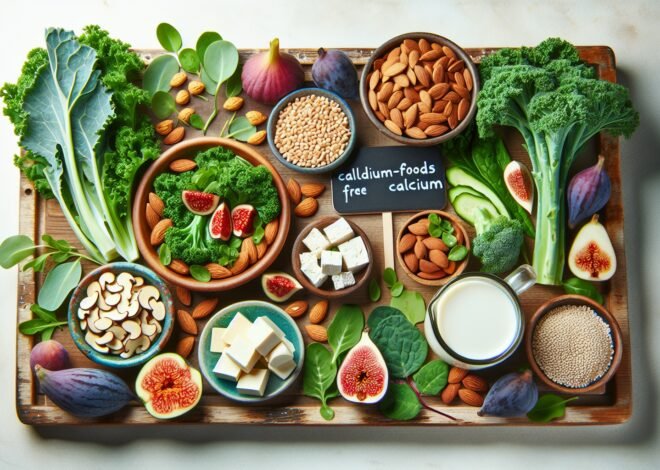
Diet Myths Debunked: Common Misconceptions About Diets
In the world of nutrition and dieting, numerous myths and misconceptions can mislead individuals striving for healthier lifestyles. These myths often stem from outdated information, misunderstandings, or oversimplifications. This guide aims to debunk some of the most common diet myths, providing clarity and evidence-based truths to help you make informed dietary choices.
Myth 1: Carbs Make You Gain Weight
The Myth
Carbohydrates have long been blamed for weight gain and are often portrayed as the enemy in many diet trends. This myth suggests that all carbs are bad and should be avoided to lose weight.
The Truth
Carbohydrates are an essential macronutrient and a primary energy source for the body. The type and quantity of carbs matter more than their mere presence in the diet. Complex carbs, such as whole grains, fruits, and vegetables, provide essential nutrients and fiber, supporting overall health. Simple carbs, like sugary snacks and refined grains, can lead to weight gain if consumed in excess. Balance and portion control are key, not complete avoidance.
Myth 2: All Fats Are Unhealthy
The Myth
Fats are often associated with negative health outcomes, such as heart disease and obesity. The myth implies that consuming any kind of fat is detrimental to health.
The Truth
Not all fats are created equal. While trans fats and excessive saturated fats can contribute to health issues, unsaturated fats are beneficial. Healthy fats, such as those found in avocados, nuts, seeds, and olive oil, play crucial roles in brain function, hormone production, and nutrient absorption. Including healthy fats in moderation is vital for a balanced diet.
Myth 3: Skipping Meals Helps You Lose Weight
The Myth
Skipping meals, such as breakfast, is often seen as an effective way to reduce calorie intake and lose weight quickly.
The Truth
Skipping meals can lead to overeating later in the day, disrupt metabolism, and decrease energy levels. A consistent eating schedule with balanced meals helps regulate hunger, maintain energy, and prevent binge eating. It’s more effective to focus on portion control and nutritious food choices rather than skipping meals altogether.
Myth 4: Juice Cleanses Detoxify the Body
The Myth
Juice cleanses and detox diets claim to cleanse the body of toxins and lead to rapid weight loss and improved health.
The Truth
The body has its own detoxification system, primarily the liver and kidneys, which efficiently eliminate toxins. Juice cleanses often lack essential nutrients, such as protein and fiber, and can lead to muscle loss and nutrient deficiencies if followed for extended periods. A balanced diet with plenty of water, whole foods, and regular exercise is the best way to support the body’s natural detox processes.
Myth 5: Eating After 8 PM Causes Weight Gain
The Myth
The belief that eating late at night leads to weight gain is a common misconception. It suggests that the body’s metabolism slows down in the evening, causing food consumed at night to be stored as fat.
The Truth
Weight gain is more about the total number of calories consumed versus calories burned throughout the day, not the timing of meals. Eating late at night can lead to weight gain if it results in excessive calorie intake or unhealthy food choices. However, eating balanced meals and snacks when hungry, regardless of the time, is more important than adhering to strict meal timing rules.
Myth 6: You Must Eat Small, Frequent Meals to Boost Metabolism
The Myth
The idea that eating small, frequent meals throughout the day boosts metabolism and aids in weight loss is widespread.
The Truth
There is no conclusive evidence that eating more frequently increases metabolism or promotes weight loss compared to eating fewer meals. The total caloric intake and nutrient quality are more important. Some people may find small, frequent meals help manage hunger, while others may prefer larger, less frequent meals. It’s essential to find a pattern that suits your lifestyle and nutritional needs.
Myth 7: You Should Avoid Gluten Unless You Have Celiac Disease
The Myth
Gluten-free diets have gained popularity as a healthier choice for everyone, not just those with gluten intolerance or celiac disease.
The Truth
For individuals with celiac disease or non-celiac gluten sensitivity, avoiding gluten is essential. However, for most people, gluten is not harmful. Gluten-free products can sometimes be lower in essential nutrients and higher in sugar or fat to improve taste. It’s important to focus on a balanced diet rich in whole foods rather than unnecessarily eliminating gluten.
Myth 8: Detox Teas and Supplements Are Essential for Weight Loss
The Myth
Detox teas and supplements are often marketed as quick fixes for weight loss and body detoxification.
The Truth
Detox teas and supplements often contain laxatives or diuretics, which can lead to dehydration and nutrient deficiencies. They do not promote sustainable weight loss and can be harmful if used excessively. A healthy diet, regular exercise, and adequate hydration are the safest and most effective ways to achieve and maintain a healthy weight.
Conclusion
Navigating the world of nutrition can be challenging with so many conflicting messages. Understanding the truth behind common diet myths can help you make informed decisions about your health and well-being. A balanced diet that includes a variety of nutrient-dense foods, proper portion control, and a healthy lifestyle is the key to long-term success. Always consult with a healthcare professional or registered dietitian before making significant changes to your diet.
Frequently Asked Questions
Is it okay to eat carbs if I want to lose weight?
Yes, carbs are an essential part of a balanced diet. Focus on complex carbs like whole grains, vegetables, and legumes, and be mindful of portion sizes.
Are all fats bad for my health?
No, not all fats are bad. Healthy fats, such as those found in avocados, nuts, and olive oil, are beneficial for your body. It’s important to limit trans fats and excessive saturated fats.
Can I lose weight by skipping meals?
Skipping meals can lead to overeating later and may not be effective for weight loss. Eating balanced meals and snacks throughout the day is a healthier approach.
Do I need to do a detox to cleanse my body?
No, your body has its own detoxification system. Focus on eating a balanced diet, staying hydrated, and getting regular exercise to support your body’s natural detox processes.
Is it bad to eat late at night?
Eating late at night can lead to weight gain if it results in consuming excess calories. It’s more important to focus on total daily caloric intake and the quality of your diet.
Do detox teas work for weight loss?
Detox teas are not a sustainable or safe method for weight loss. They can lead to dehydration and other health issues. A healthy diet and regular exercise are the best ways to lose weight.











